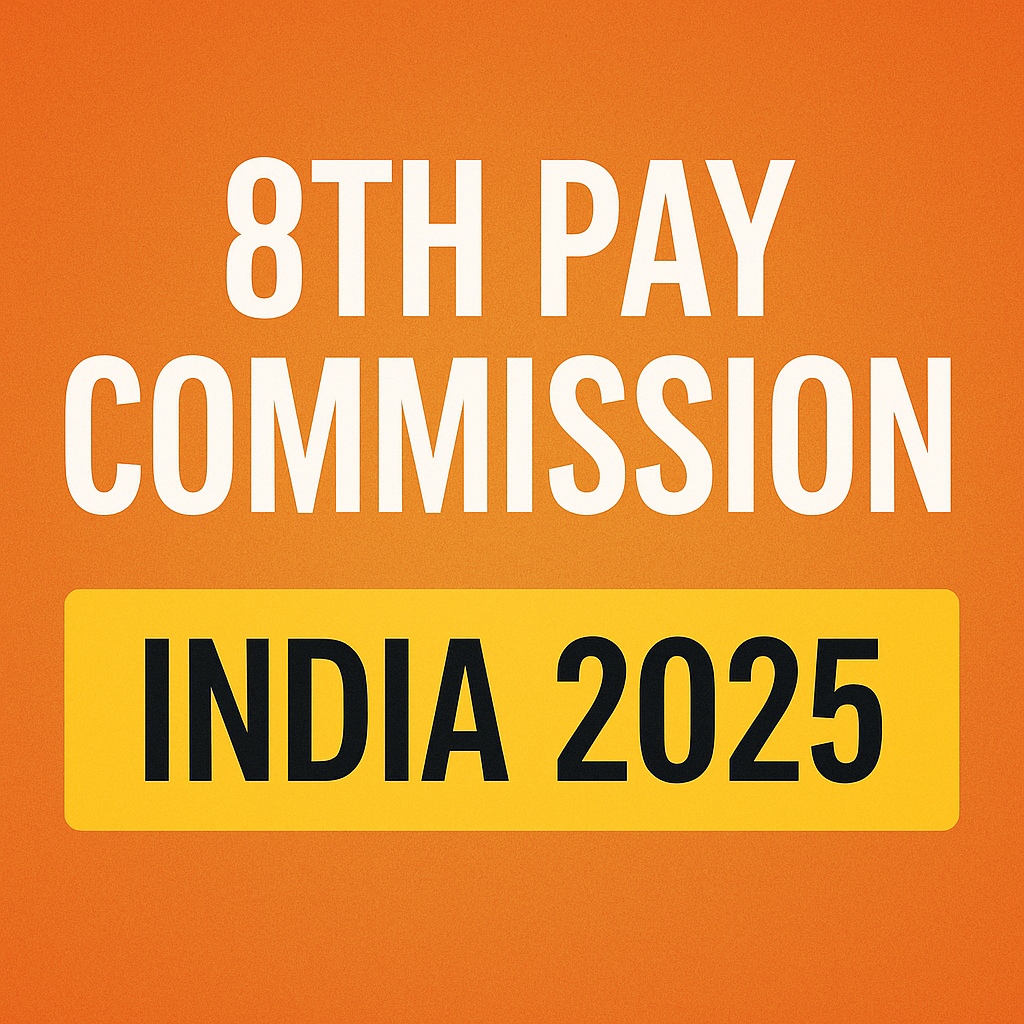India’s government employees are eagerly awaiting the implementation of the 8th Pay Commission, which promises to bring better pay scales, allowances, and overall benefits for millions of employees across various departments. If you’re wondering about the 8th Pay Commission, its timeline, and potential impact on salaries, this article breaks down everything you need to know.
What is the 8th Pay Commission?
The 8th Pay Commission is a body constituted by the Indian Government to review the current salary structure and recommend changes to improve the compensation and benefits for central government employees. The 7th Pay Commission, which was implemented in 2016, brought significant changes, but the 8th Pay Commission is expected to bring even more substantial revisions to address inflation, cost of living, and other economic factors.
Why is the 8th Pay Commission Important?
The Pay Commission plays a crucial role in determining the salary, allowances, and benefits of government employees. These recommendations also impact pensioners, military personnel, and various public sector employees. With rising inflation and the growing demand for a more equitable salary structure, the 8th Pay Commission will be essential in ensuring that employees’ earnings match their hard work and dedication.
8th Pay Commission Timeline
While the government has not yet announced an official date for the formation of the 8th Pay Commission, there are a few expected timeframes:
- Formation of the 8th Pay Commission: Experts predict that the government will set up the 8th Pay Commission by 2026, based on the pattern followed by previous Pay Commissions.
- Recommendations: It’s expected that the commission will take 1–2 years to review and submit its recommendations. So, we can expect the final report by 2028.
- Implementation: If approved, the recommendations could be implemented by 2029–2030, giving government employees a much-anticipated salary revision.
Key Features Expected in the 8th Pay Commission
- Revised Pay Scales: The pay scales will be revised to accommodate inflation, rising living costs, and employee welfare. The 8th Pay Commission may introduce better pay bands to ensure a fair wage for employees across different sectors.
- Increased Allowances: The 8th Pay Commission is likely to suggest an increase in various allowances such as House Rent Allowance (HRA), Dearness Allowance (DA), and Travel Allowance. This will help government employees manage their living expenses more efficiently.
- Higher Pension Benefits: Pensioners will see an improvement in their pension schemes, and the age-related retirement benefits might also see a revision to ensure adequate post-retirement financial security.
- Performance-Based Incentives: In line with modern-day trends, the 8th Pay Commission could introduce performance-based incentives or bonuses to motivate government employees to perform better and deliver exceptional results.
- Impact on the Private Sector: Although the Pay Commission specifically targets government employees, it is likely that the recommendations will influence the private sector as well. Companies in India may need to revise their salary structure to remain competitive in the job market.
How Will the 8th Pay Commission Affect Your Salary?
For most government employees, the 8th Pay Commission is expected to lead to a significant increase in salaries. However, the exact figures are still speculative. The pay hike may range from 20% to 30%, based on the recommendations of the Commission. The DA, which is revised twice a year, is also expected to see a sharp increase to keep up with inflation.
8th Pay Commission: Frequently Asked Questions (FAQs)
1. Will there be a major salary hike? Yes, it is expected that the 8th Pay Commission will propose a considerable increase in salary and allowances for government employees to keep up with the rising cost of living.
2. Will pensioners benefit from the 8th Pay Commission? Absolutely. The pension benefits for retirees are also expected to be revised in line with the salary hike, ensuring that pensioners can maintain their standard of living post-retirement.
3. Will the 8th Pay Commission be applicable to state government employees? The recommendations of the 8th Pay Commission are applicable to central government employees, but state governments may choose to adopt similar revisions for their employees.
4. How soon will the 8th Pay Commission be implemented? The recommendations will likely take a couple of years to be fully implemented. However, the timeline depends on the government’s approval process and other administrative factors.
Conclusion
The 8th Pay Commission is expected to bring relief to government employees with better pay scales, allowances, and retirement benefits. While the exact details and timeline remain uncertain, it’s clear that the government is focused on improving the financial well-being of its employees. Keep an eye out for further updates on this topic, as the recommendations of the Pay Commission will shape the future of government jobs in India.
By using relevant keywords such as “8th Pay Commission India,” “Pay Commission salary hike,” “8th Pay Commission timeline,” and “impact of 8th Pay Commission,” this article is designed to rank on Google and provide readers with comprehensive insights into the upcoming changes.






